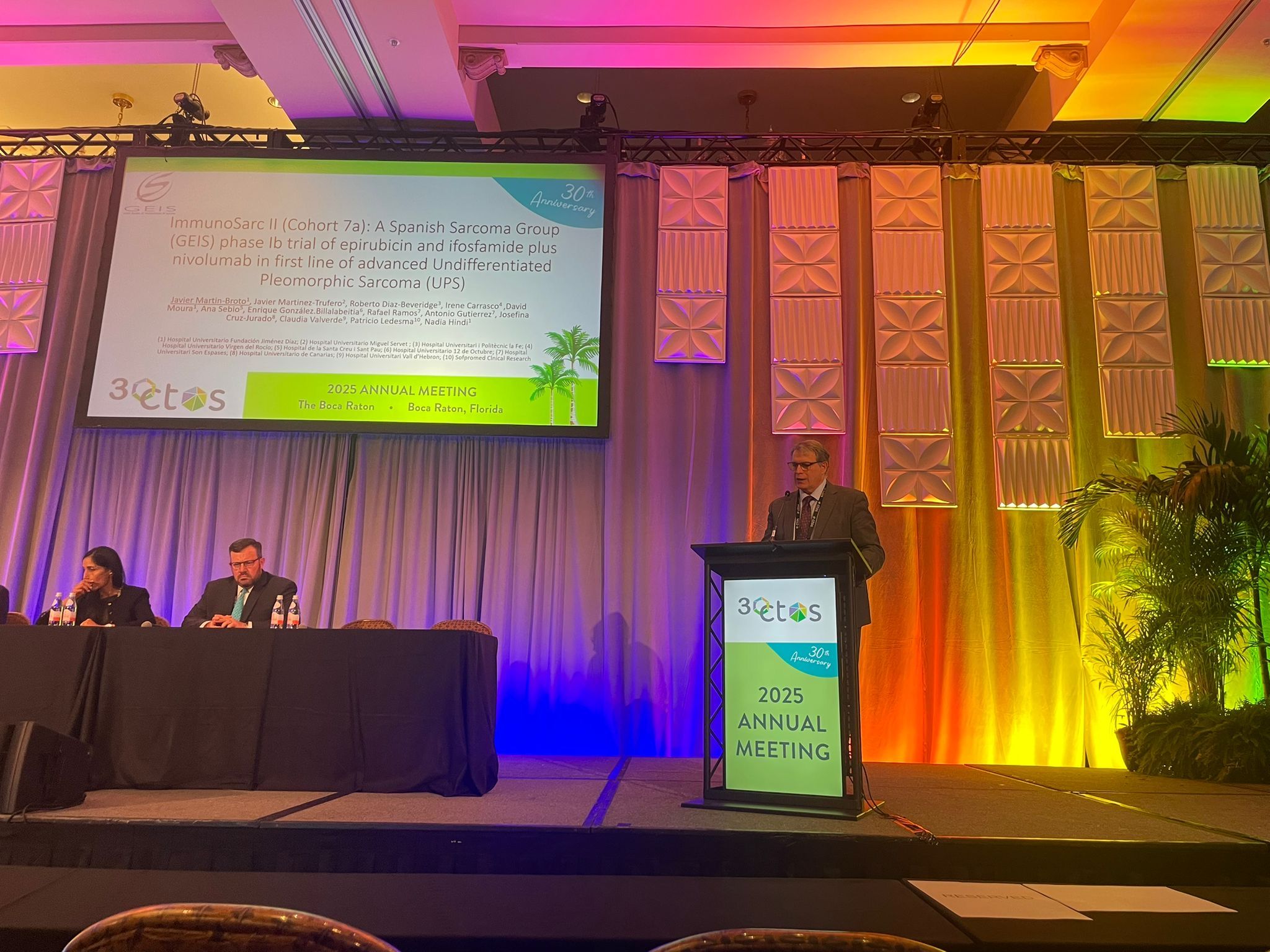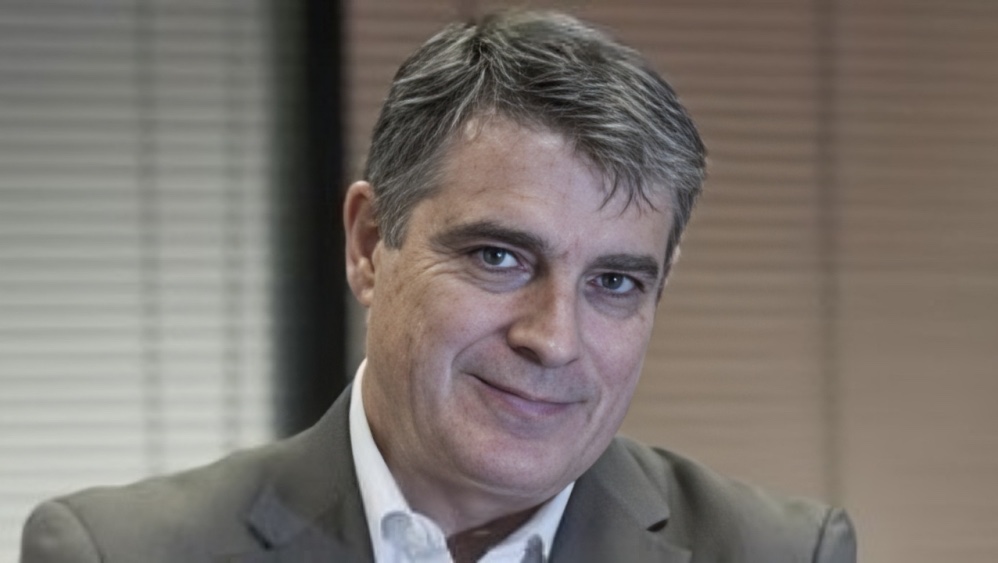Javier Martin-Broto, Sarcoma Medical Oncologist at the University Hospital Fundacion Jimenez Diaz, shared on LinkedIn:
” I felt very proud to present, on behalf of the Spanish Sarcoma Research Group (GEIS), the final results from cohort IB at the CTOS meeting in Boca Raton (FL), which investigated the combination of epirubicin, ifosfamide, and nivolumab as a first-line treatment for advanced UPS within IMMUNOSARC trial.
All patients were treated at the initial dose level with epirubicin 60 mg/m²/day on days 1-2, ifosfamide 3 g/m²/day on days 1-3, and nivolumab 360 mg on day 3 with support of MESNA and G-CSF, followed by 12 months of maintenance with nivolumab. No dose-limiting toxicities were observed, so dose reduction to level -1 was not necessary. Following central radiological review, an objective response rate (ORR) of 68.8% was achieved in 16 evaluable patients, the mPFS was 10 months, 94% of patients experienced some degree of tumor shrinkage, the median duration of response was 12.5 months, and the median overall survival has not yet been reached, with a median follow-up of 16.3 months. At the time of the clinical cutoff, 50% of patients remained progression-free.
Of note, while an increasing HMGB1 concentration in blood over time (week 6 vs. baseline) was associated with a favorable trend towards longer PFS [not reached vs. 9.9 months (p = 0.066)], high baseline expression of HMGB1 significantly correlated with poorer PFS.
These findings suggest that innate HMGB1 release due to tumor necrosis is detrimental, whereas induced HMGB1 release resulting from chemotherapy may be beneficial in the context of the molecular events of immunogenic cell death. We are very excited to test, in the near future, the potential added value of immunomodulation combined with anthracycline-based chemotherapy in some selected advanced STS in a randomized trial.”

More posts featuring Javier Martin-Broto.


